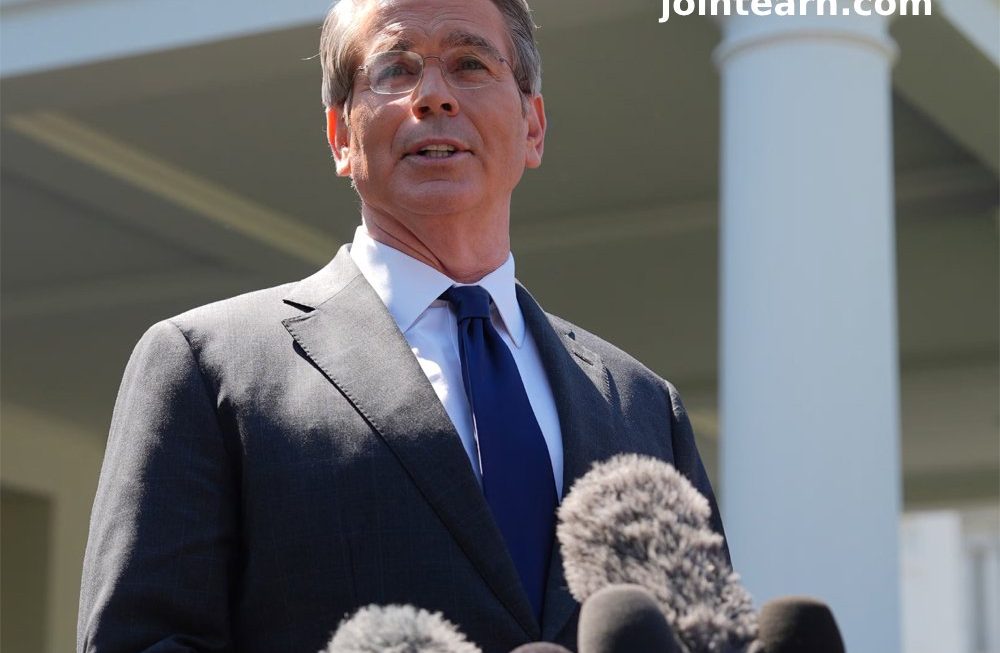President Trump’s tariffs on thousands of imported goods are set to trigger higher consumer prices and widespread product shortages, particularly as global supply chains continue to unravel. But what’s most concerning is that Trump seems determined to shift blame for these price hikes—without acknowledging the full impact of his tariff policies.
As Trump’s tariffs worsen global supply chain disruptions, major retailers like Walmart, Target, and Home Depot have already warned that prices will rise and shelves will go empty by summer. These CEOs expressed their concerns to the White House in a recent meeting, underscoring the inflationary effect of Trump’s tariffs on everyday goods.
Despite these warnings, Trump seems eager to keep the source of rising prices hidden from the public.
Retailers Prepare for Higher Prices and Shortages
Retailers are caught in a tough spot. Amazon was reportedly preparing to highlight the additional costs imposed by Trump’s tariffs on certain products. However, the White House quickly accused Amazon of making a “hostile and political act” in response, with Press Secretary Karoline Leavitt asserting that Amazon didn’t blame President Biden for inflation in 2022.
Though Amazon appears to have shelved its plan for tariff disclaimers on its site, the tariff blame game is just beginning. With Trump’s trade war escalating, many consumers are bracing for higher retail prices as tariff costs are passed on to them.
Tariffs Are Driving Up Consumer Costs
Trump’s tariffs, currently pegged at 145% on goods from China, will likely lead to significant price increases on everyday items like clothing, electronics, appliances, and toys. In some cases, tariffs are so steep that businesses may be forced to stop importing certain goods altogether, causing supply shortages across stores.
Tariffs are essentially a consumption tax, which means they add extra costs directly to the price of imported goods. This tax will hit consumers directly, resulting in higher prices for everyday products. And unlike other sources of inflation, Trump tariffs will be the sole cause of these price increases. While Biden’s inflation was influenced by multiple factors—such as COVID-related shortages and stimulus-driven spending—Trump’s tariffs are a more direct and visible cause of rising costs.
The Coming Tariff Blame Game
Retailers, who are already under pressure from higher prices, will likely try to deflect blame onto the government. They may issue vague statements on price hikes, pointing to “government policy changes” without directly calling out Trump’s tariffs by name. Small businesses could take a similar approach, warning customers through informal notices, as many restaurants have done with surcharges for rising food costs.
The issue is compounded by Americans’ increasing awareness of the impact of Trump’s tariffs on inflation. A recent University of Michigan survey found that consumer inflation expectations are now the highest they’ve been since 1981, largely due to Trump’s tariffs. This widespread awareness makes it harder for retailers to mask the true source of the price hikes.
Trump Has the Power to End the Inflationary Impact
Unlike Biden, who struggled with inflationary pressures stemming from multiple sources, Trump has a relatively easy path to ending the economic pain he’s about to cause. He can simply cancel the tariffs and end the inflationary threat, sparing retailers and consumers from a prolonged battle over consumer costs. But Trump has shown a penchant for confrontation, meaning a tariff-related blame game with retailers is likely inevitable.
With Trump’s trade war intensifying, retailers and consumers will soon face a stark reality: higher prices driven directly by Trump tariffs.












